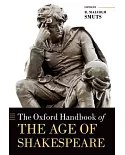Shakespeare was not, strictly speaking, a philosopher. That is, he did not write essays or treatises arguing philosophical positions or proposing an all-embracing philosophical scheme. However,
we do have the plays and poems - and they collectively give evidence of a deep moral and intellectual commitment that we can locate in what we call "Shakespeare", meaning not only the plays and
poems themselves, but the multitudinous responses they have elicited over the four centuries or so since Shakespeare wrote them.
Asking what the plays and poems suggest in continual debate about an array of topics -- sex and gender, politics and political theory, writing and acting, religious controversy and issues of
faith, skepticism and misanthropy, and closure -- we can delve into the philosophy of Shakespeare as a great poet, a great dramatist and a "great mind".





















